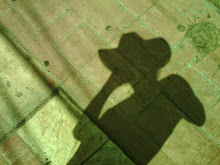If you have no idea what a "countryball" is, you're not alone in the English-Speaking world. Countryballs have gone viral on Facebook and other social media sites in places like Chile, Argentina, Brazil, Poland, and Venezuela, and are rapidly spreading, even to places like Africa. Despite their roaring success elsewhere, Countryballs are relatively unknown in the U.S., Great Britain, and Australia, my big question is:
Why?
First, let's talk a little about what a "countryball" is. It's a simple, comic-like representation of a country, typically a ball with some eyes, a mouth (maybe) and the country's flag on it (see image 1). These balls interact with each other in a comic, consisting of anywhere from one to 5 or more slides, and generally play on stereotypes, geopolitical situations, and historical events to make jokes (see image 2). Although the humor isn't for everyone, and the quality of the pages varies quite a bit, most of the countryballs have been quite successful with their target audiences (I.E. the main country represented by the page).
 |
| Image 1 |
 |
| Image 2 |
Now that you know what a countryball is, why aren't they successful in the English-Speaking world? After analyzing the situation for a long time, and discussing it with quite a few people on the ground, I can safely say it boils down to three main reasons:
1) Political correctness.
2) Lack of geopolitical/historical knowledge.
3) Lack of bad neighbors.
Now, you may be thinking, "This guy is just being an ass, and doesn't know what he's talking about.", but let's delve into the reasons a little further, and then you can let me know if you end up agreeing.
First, political correctness, that same web of unspoken rules about interpersonal relations, especially with those who aren't exactly the same as you are, that I'm breaking now. This idea that you have to dance around other people's sensibilities at all times is helpful sometimes, but can be a great hindrance to expression (as described quite succinctly here). Many places around the world, including here in Chile have a much different outlook on political correctness than that found in most of the English-Speaking world. Here, for example, it's not uncommon for someone to call you out on those physical aspects that might be considered untouchable in the United States (here you can give your friend a nickname like Guatón - "Fatty" or Negro - "Black", and it's considered a term of endearment, not an insult) and this extends to other aspects of interpersonal interaction, like humor. Most of the humor found on countryball pages is necessarily politically incorrect, because it boils down countries that can be quite diverse, and highlights all of their (sometimes quite true) stereotypes, offending many, but making many more laugh out loud with every comic. Image 3 will give you readers in the US an idea of what I'm talking about.
 |
| Image 3 |
Secondly, there's a general lack of geopolitical and historical knowledge. I know this might be a bit offensive, and doesn't apply as much to the British, Australians, or South Africans as much as it does to the Americans, but most of the English-Speaking world is marked by indifference towards everybody else. Most of these English-Speaking countries are rather important on the geopolitical stage, and therefore tend to ignore the rest of the world, unless they have something the powers that be want for them (oil, minerals, strategic importance, etc.). Most of the people there, especially in the US, tend to have little easy access to information about the rest of the world, and are told that they don't need it, because it doesn't affect them. Even today, in a globalized world, most students in the US get 11 years of US history, and 1 year of world history from a US perspective. As with most places on earth, the curriculum is quite biased and accentuates only the positive aspects of national history, developing a "My country right or wrong" complex that precludes criticism, replacing it with fervent nationalism, and hampers curiosity about the rest of the world. This video serves to highlight my point. If you can't recognize the flags on the countryballs, and can't point out more than a handful of countries on a map, this humor isn't for you.
My last point is pretty straightforward, and won't require much explanation. In places like the US and Australia, you don't have a whole lot of different people in the neighborhood to pick on, one or two countries, with which you get along reasonably well, doesn't make for a lot of good jokes. In the US's case, there's only Mexico and Canada, and most of the jokes you can make there are old, and kind of boring. Britain has a better scene here, being close to Europe, but points one and two still get in the way. In order for your countryball to be successful, you need at least 3 neighbors that you can rip on all day, every day. Neighbors that do stupid things, that pick fights over almost nothing, and that have long standing geopolitical tensions with your country and between themselves help the jokes write themselves. Without this crucial element, it's hard to keep the material coming on a daily basis, and even avid readers will get bored if you only submit one or two jokes a month.
All in all, I think countryballs are here to stay, at least where they're already popular, and hope to see them in English sometime soon, with the same witty, irreverent material you can get in Spanish today. Take a look at the list below, and if you like a ball, be sure to share it, and let me know!
Established Balls:
- Chileball (Spanish)
- Brazilball (Portuguese)
- Polandball (Polish and English, mostly)
- Venezuelaball (Spanish)
English-Speaking Balls:
Image credit goes to Chileball.

No comments:
Post a Comment